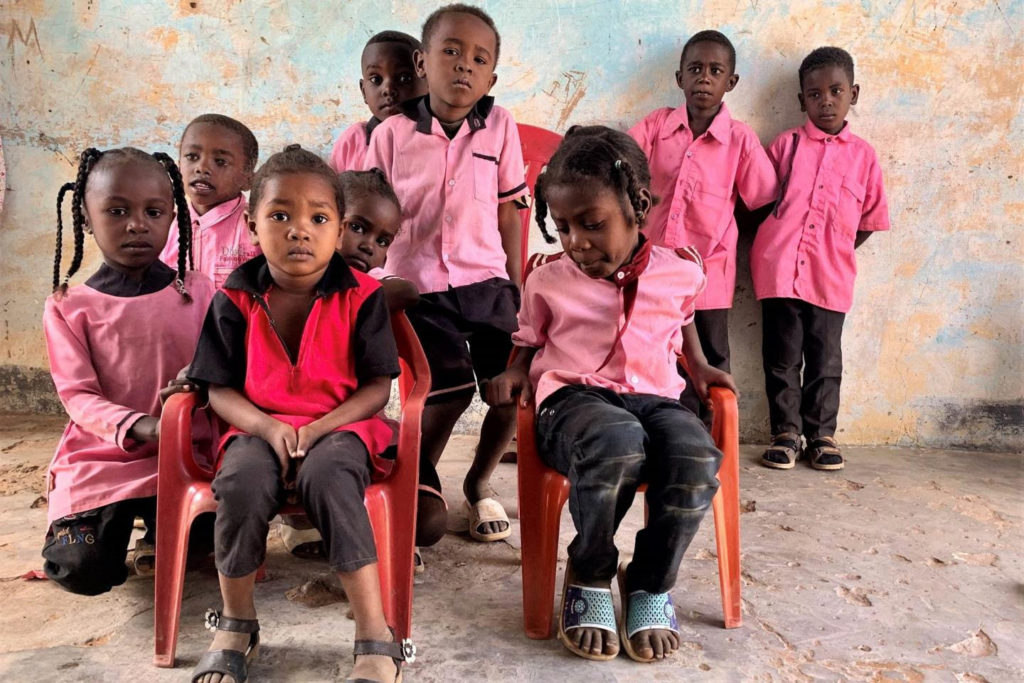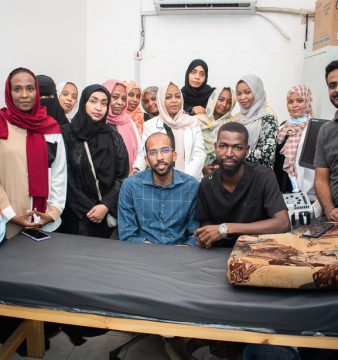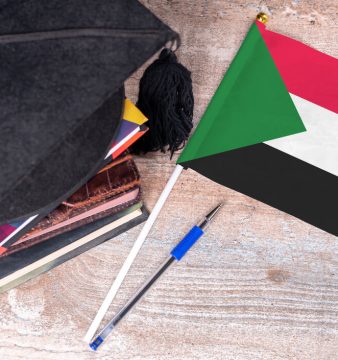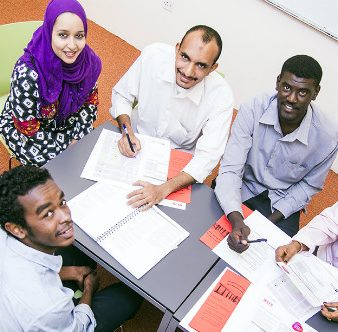Education Cannot Wait Announces USD17.7 Million Grant for New Multi-Year Programme in Sudan

On 11 January 2021, Education Cannot Wait (ECW) announced USD17.7 million in catalytic seed funding to roll out a first ever Multi-Year Resilience Programme in Sudan.
The catalytic grant will be delivered in partnership with Save the Children and UNICEF. The grant seeks to catalyse an additional USD60 million in funding for the multi-year programme while, at the same time, calling international attention to the pressing humanitarian crisis in Sudan.
The initial seed-funding investment will support access to quality life-sustaining education programmes for at least 100,000 displaced, conflict-affected and vulnerable children and adolescents in Sudan. To reach the most vulnerable and marginalised, 60% of beneficiaries are girls and 10% are children with disabilities.
The investment will be implemented by a Save the Children-led consortium (US$14.7 million grant) – which includes the Norwegian Refugee Council, International Aid Services and Global Aid Hand – and UNICEF (US$3 million grant).
‘Without an education, girls and boys face increased risk of child marriage, early pregnancy, exploitation, abuse, recruitment into armed groups and child labour.’
‘Conflict, COVID-19, climate change and a deepening economic crisis are derailing efforts to build peace, unity and sustainable development in Sudan. Without an education, girls and boys face increased risk of child marriage, early pregnancy, exploitation, abuse, recruitment into armed groups and child labour. Our investment in education is an investment in the future of Sudan. It’s an investment in ending poverty and hunger. It’s an investment in peace,’ said Yasmine Sherif, Director of ECW.
ECW is the UN’s global fund for education in emergencies and protracted crises. They support quality education outcomes for refugee, internally displaced and other crisis-affected girls and boys. ECW works through the multilateral system to both increase the speed of responses in crises and connect immediate relief and longer-term interventions through multi-year programming. ECW works in close partnership with governments, public and private donors, UN agencies, civil society organisations, and other humanitarian and development aid actors to increase efficiencies and end siloed responses. ECW is administered under UNICEF’s financial, human resources and administrative rules and regulations; operations are run by the Fund’s own independent governance structure.
‘For the past several years, education has been severely disrupted for millions of children in Sudan, with conflict-affected children, girls, and children living with a disability most impacted. Save the Children, along with its consortium partners, is delighted to partake in the Education Cannot Wait Multi-Year Resilience Programme to deliver lifesaving and life-sustaining education opportunities for the most vulnerable children in Sudan. Our holistic approach to education ensures children have access to quality education in a supportive, protective, and well-resourced learning environment with excellent teachers, whose professional development is supported. This Programme will allow the most marginalised and vulnerable children in Sudan to return to school, remain in school, and to build a future,’ said Arshad Malik, the Country Director of Save the Children Sudan.
Save the Children Sudan operates humanitarian and development programming in 10 out of 18 states across the sectors of education, child protection, child rights governance, health, nutrition, access to water and sanitation, and shelter.
‘The children of Sudan need education support now more than ever. This Multi-Year Resilience Programme will provide inclusive, quality and protective learning environments to vulnerable girls and boys living in very difficult circumstances. It safeguards their right to develop and thrive. With this investment, we have a chance to ensure that no child in Sudan is left behind, no matter their circumstances and where they come from because education can’t wait,’ said Mandeep O’Brien, UNICEF Sudan Representative.
A growing crisis
Before the COVID-19 pandemic hit, an estimated 4.3 million children were out of school in Sudan, with another 9.6 million experiencing prolonged absences in 2020. Schools are overcrowded and ill-equipped, teachers are underpaid and undertrained, and few children and adolescents are able to access remote learning opportunities.
Girls are the most vulnerable. Only one out of four girls go on to secondary school in Sudan, compared to one out of three for boys.
Approximately 7 million people face crisis levels of food insecurity across the country, and access to safe drinking water and sanitation facilities in schools is extremely limited.
Programme impact
The multi-year programme addresses the most pressing chronic and emergent, humanitarian and development educational needs in the country. The overall goal of the programme is to sustainably improve learning outcomes, availability of opportunities, and overall well-being for crisis-affected children and adolescents in Sudan by introducing a whole-of-child approach to education.
With ECW’s support, in-country partners intend to reach 10,000 children through pre-primary education, 68,500 children through primary education, and 22,150 children through secondary education. Approximately 85% of the target beneficiaries will be supported through formal education, while 15% are children and adolescents living in camps or settlements and will be supported through non-formal education.
The investment will initially focus on South Kordofan and West Darfur, where recurring conflicts and violence have caused a sharp increase in the number of people in need of humanitarian assistance.
This article is a press release from Education Cannot Wait.
For more information, visit educationcannotwait.org.




